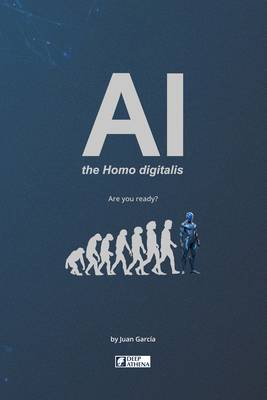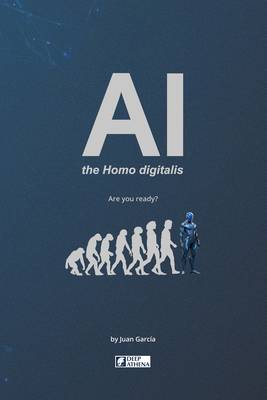
- Afhalen na 1 uur in een winkel met voorraad
- Gratis thuislevering in België vanaf € 30
- Ruim aanbod met 7 miljoen producten
- Afhalen na 1 uur in een winkel met voorraad
- Gratis thuislevering in België vanaf € 30
- Ruim aanbod met 7 miljoen producten
AI the Homo digitalis
The impact of Artificial Intelligence on human evolution: Understand AI, AGI, and ASI, their advantages, disadvantages, and the challenges
Juan GarciaOmschrijving
This book is especially for those who want to become informed and gain a better understanding of what artificial intelligence truly is, how it is already affecting us today, and how we can coexist with it in a safe and ethical way. AI the Homo digitalis is, ultimately, an essential book for anyone aware that we are living in a transitional era, where our species is beginning to coexist and compete with autonomous intelligent systems. The responsibility for defining the course of this coexistence lies with all of us, and this book is an open and sincere invitation to participate in that debate.
AI the Homo digitalis is a book that deeply explores the current reality and the near future of artificial intelligence from a simple, honest, and critical perspective. It does not just explain what AI is or how it works but clearly and openly analyzes its true potential in our daily lives, as well as the risks and major ethical, legal, and social responsibilities that its rapid development entails.
Through real-world examples, practical cases, and simple comparisons, the book guides the reader to easily understand key concepts such as Artificial General Intelligence (AGI), Artificial Superintelligence (ASI), Machine Learning, supervised learning, unsupervised learning, and reinforcement learning. But beyond that, it addresses crucial questions that few works dare to explore in depth:
- What are the ethical limits of AI?
- Who should take responsibility for errors or biases in AI systems?
- What role do governments, companies, developers, and users play in the responsible management of this powerful technology?
AI the Homo digitalis does not shy away from tough questions. It offers a balanced analysis of AI's impressive benefits across multiple sectors, such as medicine, education, industry, communication, and entertainment, while also reflecting on its potential dangers, including algorithmic discrimination, loss of privacy, lack of transparency, and the risks involved in pursuing perfect or autonomous AI systems.
Additionally, the book presents a fascinating historical perspective, tracing AI's evolution from its early stages to its current impact, illustrated with relatable examples and popular cultural references such as cinema. It also clearly explains the difference between generative and discriminative AI, how models are trained, validated, and tested, providing a practical and realistic understanding of these technologies.
Specificaties
Betrokkenen
- Auteur(s):
- Uitgeverij:
Inhoud
- Aantal bladzijden:
- 124
- Taal:
- Engels
- Reeks:
Eigenschappen
- Productcode (EAN):
- 9783912099089
- Verschijningsdatum:
- 4/09/2025
- Uitvoering:
- Paperback
- Formaat:
- Trade paperback (VS)
- Afmetingen:
- 152 mm x 229 mm
- Gewicht:
- 176 g

Alleen bij Standaard Boekhandel
Beoordelingen
We publiceren alleen reviews die voldoen aan de voorwaarden voor reviews. Bekijk onze voorwaarden voor reviews.








